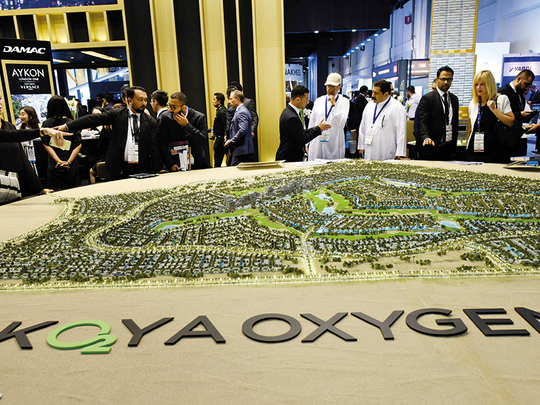
Dubai: A surge in Airbnb-driven short-term bookings eating into Dubai’s hotel industry margins? Not likely as there is enough space to accommodate all of the demand — and not necessarily competing — from the various guest categories, according to findings by the consultancy PwC.
“It’s the Generation Z that is so taken up with a “shared economy”,” said Martin Berlin, Middle East Partner and Global Deals Real Estate Leader at PwC. “This is the audience that will find a stay with an Airbnb app most appealing; but this is effectively creating a user base in cities where they didn’t exist before or wasn’t fully developed.”
PwC has issued its Megatrends report on the hospitality sector, where it defines the user groups the hospitality industry should be planning for — the “silver generation”, the millennials and Generation Z. And each group has their marked preferences on where they want to make a room booking and how they want to make it. (Until now, the millennials and the Genz Z (born after 2000) were clubbed together under the impression that their tastes bore close resemblances and with little differentiation.) But the PwC report prefers to see some subtle differences between them. “Although there is limited knowledge about the travel preferences of the Gen Z tourist, it is predicted that due to higher access to information and higher education levels, this travel segment will bring forth a new age of innovation within the travel and tourism industry,” the report states. While Gen Z would prefer non-traditional hotel concepts such as Airbnb, the millennials — more so those further up on their career paths — are “partial to smaller boutique brands and shared economy structures such as Airbnb”.
But the region’s hotel industry will still have a fight when it comes to retaining their hold on the business traveller. There are options opening up via short to longer term staying options offered by non-hotels for a corporate guest.
Cookie-cutter brands
The PwC report reckons as much. “The hotel industry’s prized possession — the business traveller — is soon to be targeted by Airbnb,” it states. “Hoteliers need to take strong proactive action to retain business travellers and attract customers across all ages and demographics.
“This would require adapting their services to become more consumer-centric in order to create unique guest experiences. Hoteliers also need to invest in creating strong identities for smaller lifestyle chains rather than larger cookie-cutter brands. It is important for the hotel industry to be proactive rather than reactive when it comes to locking horns with this disrupter.”
Dubai’s developers are changing tack, with a horses-for-courses policy rather than keep committing to hotels either too heavy with luxury trappings or a bare-bones budget option. Damac has now introduced investment options on hotel apartments overlooking its Trump golf course, with prices starting from Dh395,000. Meraas, the Dubai Government owned master-developer introduced four concepts in one go as part of its drive into developing a hospitality presence.
Growth opportunities
According to Berlin, “Dubai will still be a top attraction for the “silver” tourist, and with their preference for longer term stay options. The laws on short-stay homes have already been passed in Dubai and it’s just a matter of time before other Gulf cities come with their own versions to govern this category. It will only mean further growth opportunities.”
Even on how marketing campaigns should approach them, Gen Z are overtly dependent on connectivity while millennials want to know more — and are not immune to influence by — social media.
For Middle East hoteliers, there are lessons on marketing tactics they will need to imbibe. “The shift from the intermediaries to the influencers is one of the largest marketing shifts the travel and tourism industry has foreseen,” the report notes. “The Gen Z and the millennial tourists are no longer swayed by travel brochures but are most likely to make decisions based on social media influence. Therefore, it is imperative for players in the travel and tourism industry to increase the importance of social media platforms in their marketing strategies.”











